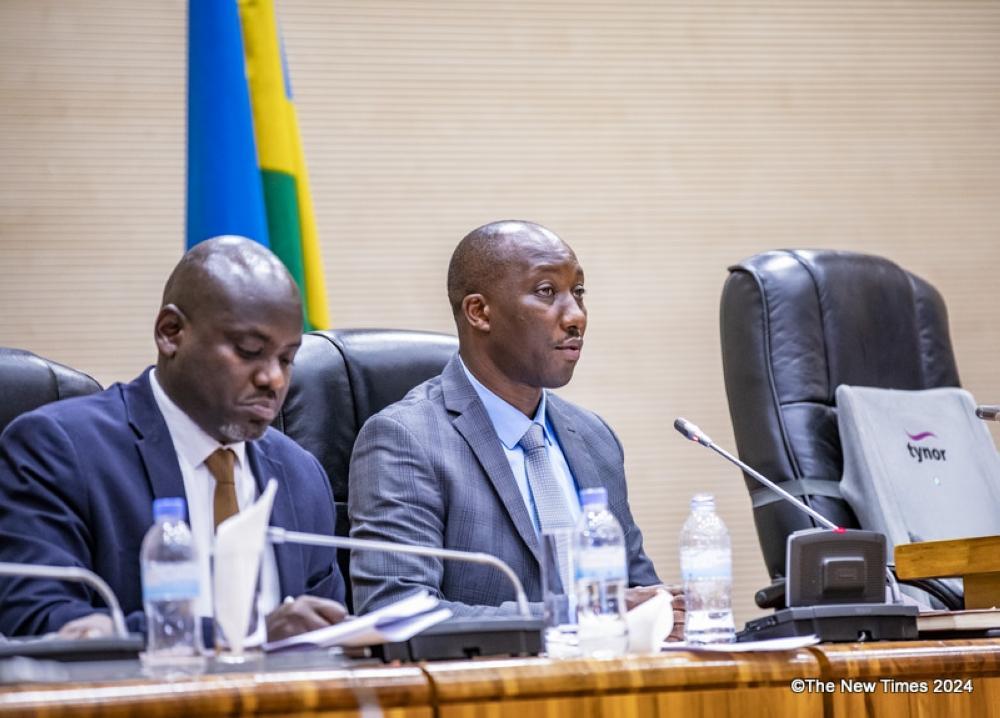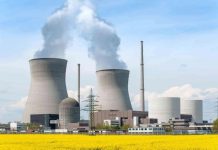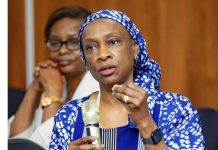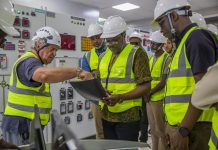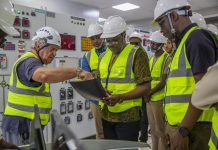Africa-Press – Rwanda. The Government of Rwanda will not attain its universal energy access target by June 2024 as a result of different factors, but it is banking on two multimillion-dollar projects meant for scaling up electricity distribution among the country’s households, according to Minister of Infrastructure, Jimmy Gasore.
He made the observation on March 5, during a plenary session of the Chamber of Deputies that was looking into concerns highlighted in a report by the Auditor General regarding Rwanda’s electricity production and distribution.
On the query from lawmakers about progress on the government’s target to ensure energy access to all Rwandan households under the first phase of the national strategy for transformation (NST1), Gasore said that, overall, 75.9 per cent of Rwandan households had access to electricity as of end January 2024. Of these, 54 per cent were connected to the national grid, with 21.9 per cent accessing it through solar-based systems.
The Acting Managing Director of Energy Utility Corporation Limited (EUCL), Claver Gakwavu, told The New Times that the nationwide 75.9 per cent rate corresponds to more than 2.6 million households connected to electricity – out of Rwanda’s total households estimated at more than 3.4 million currently.
Challenges, projects expected to scale up energy access
Talking about challenges that could hinder the achievement of the energy access target, Gasore said that the government had an issue with access to the required equipment, especially in the last two years, citing instabilities [rise] of prices at the international market which stemmed from the Covid-19 pandemic and Russia-Ukraine war.
He noted that this led to certain suppliers, who had contracts with the government for importing equipment into the country, failing or delaying the provision of these items, despite timely purchase orders being placed.
He said that challenges that were experienced include the Covid-19 pandemic which had an impact on the energy sector in two ways – including negatively affecting cash flow, and a technical issue related to access to the required equipment to enable execution of already undertaken projects or planned activities.
Another challenge that might hinder energy access to all households by June 2024 is inadequate funding compared to the available needs.
“There is still a short time to [June] 2024, and we will not achieve 100 per cent energy access among Rwandans,” he said.
“But, there are undertaken projects to fast-track access to electricity among Rwandans,” he said, referring to two initiatives expected to connect more than 900,000 households to electricity.
One of the projects is a programme called RUEAP which is expected to connect 450,000 new households to electricity, Gasore said.
RUEAP stands for Rwanda Universal Energy Access Program, which is intended to support the Government of Rwanda’s energy access objectives.
It is a multi-donor energy sector investment financing programme – at a tune of around $700 million (approx. Rwf890 billion) from partners including the World Bank, African Development Bank, and the European Investment Bank, according to EUCL which also indicated that the project implementation started in the financial year 2022/2023 and its completion is expected in 2027.
Another project, Gasore said, is the Accelerating Sustainable and Clean Energy Access Transformation Rwanda (ASCENT) project – with $400 million in funding – which is expected to connect 470,000 new households to electricity.
On January 11, the Lower Chamber of Parliament approved a law ratifying a $300 million (approx. Rwf380 billion) financing agreement meant to fund the ASCENT project which runs from 2024 through 2029.
The deal was signed between Rwanda and the World Bank’s International Development Association (IDA), on December 14, 2023, in Kigali.
Meanwhile, according to EUCL’s Claver Gakwavu, as the number of households keeps on changing as new ones are formed, no country should report that it has achieved 100 per cent energy access in a fixed period – it can be like 99 per cent because there are always new ones that need to be electrified.
For More News And Analysis About Rwanda Follow Africa-Press

